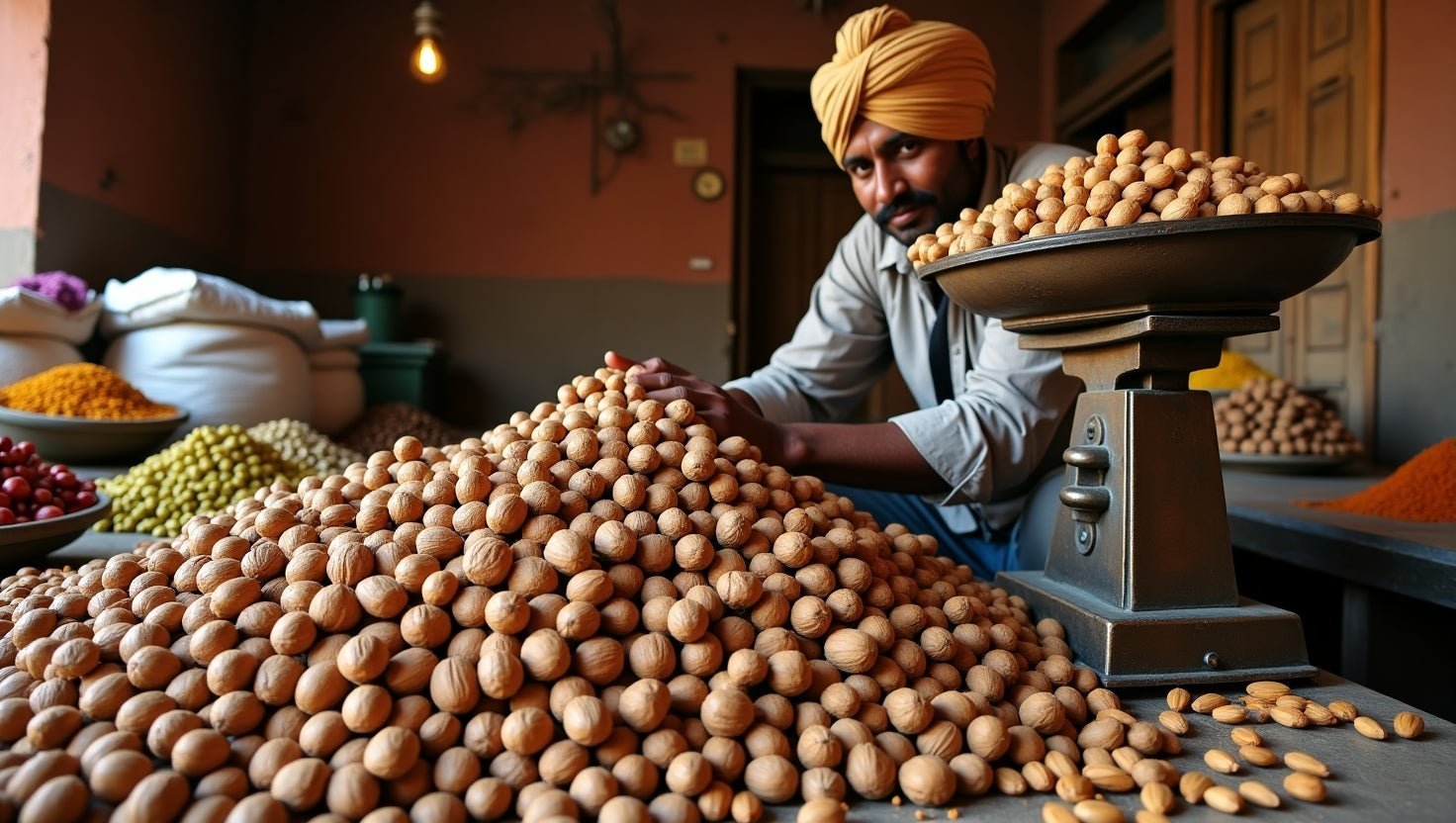Here’s a juicy dry fruit secret you didn’t see coming:
The walnut — a superfood, gift box favorite, and high-margin import item — is being rerouted through Thailand to save massive customs duties in India.
This is not smuggling.
This is smart international routing, thanks to a legal trade loophole through the ASEAN free trade agreement. 🌏📦
Let’s break it down in plain terms.

🌰 India Loves Walnuts. But Import Duties? Not So Much.
India is the second-largest importer of walnuts in the world.
While Chile exports 50,000 metric tons of walnuts to India each year, the U.S. is also a huge supplier.
But here’s the twist:
-
Chile faces 100% Basic Customs Duty on walnuts
-
The U.S. also faces heavy import duties, specifically set to protect Kashmiri walnut farmers
This makes direct import from these countries very expensive.

🚨 The U.S.–Thailand–India Route: Why It Works
So how are Indian importers still bringing in U.S. walnuts — at a profit?
Here’s the game plan:
-
Walnuts are exported from the U.S. to Thailand
-
In Thailand, they are unshelled, repackaged, and processed
-
They’re then re-exported to India, not as “U.S. origin” — but as Thai-processed goods
Why Thailand?
👉 Because India has a Free Trade Agreement (FTA) with ASEAN countries, including Thailand.
👉 That means lower customs duties for goods entering India from Thailand.
So instead of paying high U.S. duties, importers are saving 20–40% on costs using this smart workaround.

💸 How Much Can This Save?
Let’s do a quick cost comparison per kilogram:
| Origin | Base Cost | Duty | Processing/Repack | Final Import Cost |
|---|---|---|---|---|
| 🇺🇸 U.S. (Direct) | ₹400 | ₹300+ | — | ₹700–₹800 |
| 🇹🇭 U.S. via Thailand | ₹400 | ₹50–₹100 | ₹50 | ₹500–₹550 |
This is a ₹200–₹300 per kg saving.
On large imports, that’s lakhs in savings per container.
📦 Is It Legal?
✅ Yes — if you’re:
-
Processing the product meaningfully (like unshelling, repackaging)
-
Using a Thai exporter with valid FTA documents (Form D under ASEAN rules)
-
Ensuring compliance with Indian import documentation
That’s where Shunyatax Global steps in — to ensure every document, license, and invoice is tight.

🔍 Who Should Be Interested?
This strategy is perfect for:
-
Dry fruit importers sourcing from the U.S.
-
B2B wholesalers in Delhi, Mumbai, Surat, Hyderabad
-
Retail brands in premium food, organic, or gift categories
-
Distributors selling in D-Mart, Reliance Fresh, or online grocery platforms
If you know someone in this space, this is your chance to help them boost margins and cut duty costs — legally.
🧠 Final Insight: Global Trade Is a Chessboard, Not a Straight Line
This Thailand reroute is a classic example of smart global logistics — where policy, paperwork, and profit all intersect.
Just because something is produced in one country doesn’t mean it needs to be imported directly from there.
By thinking in value chains instead of straight supply chains, businesses can:
-
Save lakhs
-
Stay compliant
-
Win big — especially in high-value dry fruits


Share:
Why is it important to be aware of the risk?